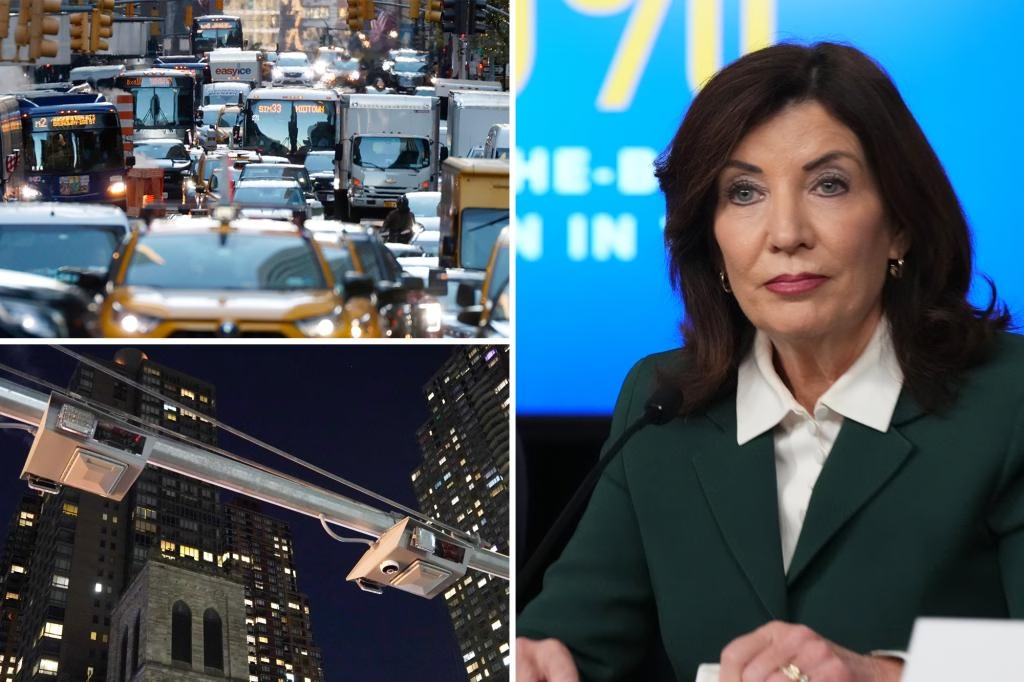New Yorkers who oppose the new congestion pricing plan are asking a federal judge to stop the proposed $9 toll, arguing it could cause “irreparable harm” to the city and its residents. They allege that Governor Kathy Hochul rushed this “unevaluated” toll system into place ahead of President Biden’s departure from office.
The coalition, called New Yorkers Against Congestion Pricing Tax, is one of several groups taking legal action against this tolling plan. They filed for an injunction recently, suggesting that Hochul is overlooking the potential negative effects on small businesses and the local economy.
According to Jack Lester, the lawyer representing the group, the governor had initially paused the program due to concerns about its financial impact, recognizing that it could potentially overwhelm hard-working New Yorkers. “The governor knows the effects but seems to ignore the legal process that requires these impacts to be considered,” Lester stated.
Last month, Hochul unexpectedly changed her stance on the indefinite pause of the congestion program, which is now scheduled to begin on January 5. This shift has led opponents to claim that the situation is urgent. They believe that a financial crisis may be on the horizon, particularly affecting essential workers such as nurses and teachers who would be forced to pay to drive into Manhattan.
Lester noted that the governor’s pause of the program should have allowed for enough time to gather public feedback and to consider adjustments that would lessen negative outcomes. “There was an opportunity for more public input, but it seems to have been ignored,” he asserted.
The group’s appeals are part of a broader lawsuit filed in federal court earlier this year, which contends that the congestion pricing plan skipped necessary environmental reviews, especially in terms of its socioeconomic consequences.
The lawsuit calls for a thorough evaluation of the toll’s socio-economic impacts and requests that exemptions be carved out for essential workers, emphasizing the importance of civil servants and first responders.
A hearing is set for December 20, where Judge Lewis Liman will consider arguments from New Yorkers Against Congestion Pricing and other stakeholders who are opposing the toll’s implementation. Another involved party, the United Federation of Teachers, has filed its own legal motions expressing similar concerns regarding the environmental assessments tied to the toll.
In response to these legal actions, the MTA asserts that opponents have not provided adequate justification for their request to halt the plan. They have also rejected claims that the toll would have negative environmental consequences.
A spokesperson for Governor Hochul highlighted that nearly 90% of commuters into Manhattan already use public transportation. They argue that lowering the toll is a measure of relief and criticized opponents for not proposing effective solutions to reduce traffic congestion and improve emergency response times.
Proponents of the toll maintain that comprehensive environmental reviews were conducted prior to the implementation plan, claiming the efforts spanned a decade and involved extensive documentation.
As of now, there are multiple lawsuits in play, with many seeking to halt the toll, while some others are willing to withdraw their complaints if the plan goes forward as scheduled on January 5.




